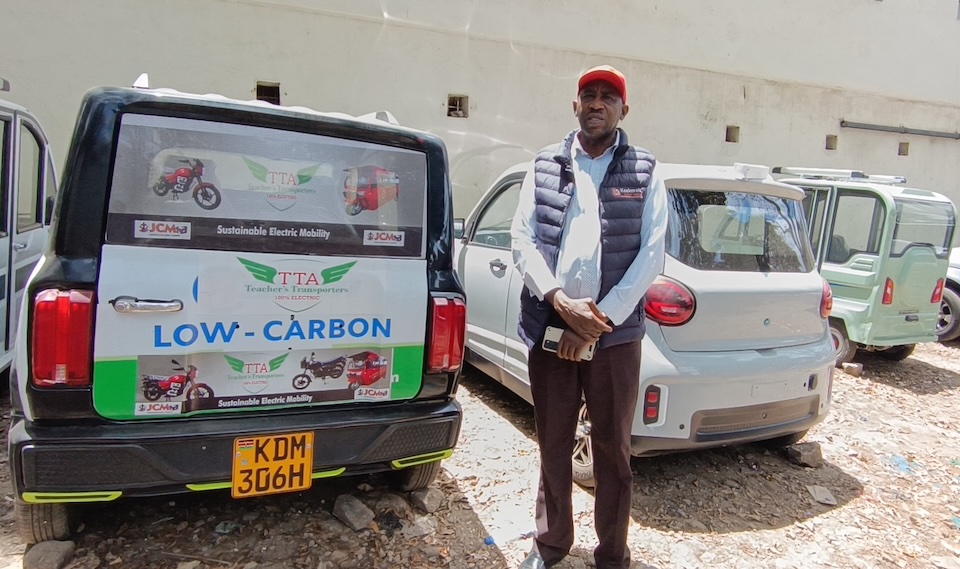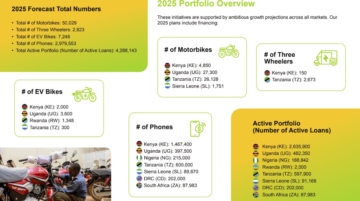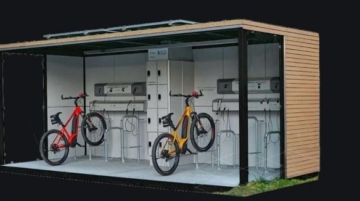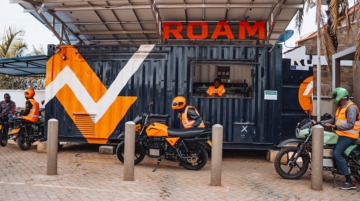
This is a free preview of the upcoming Africa EVs Weekly Digest, part of the new CGSP Intelligence service launching in Summer 2025.
Across Africa, the electric vehicle (EV) market is as diverse as its geography and tariff jurisdictions; yet, Chinese EV technology is becoming a multi-form solution in many contexts.
In Kenya, for instance, some of the most popular EV innovations are heavily funded, which attracts media attention and provides significant exposure. However, other companies that lack this form of promotion meet the needs of their customers in local ways through word of mouth and social media platforms.
Projections show that the African EV market will grow by 25 percent annually over the next five years, and local innovations will undoubtedly be a significant contributor to this growth.
This week on EVs in Africa:
Kenya’s Under-The-Radar EV Revolution
Kenya is East Africa’s frontrunner in EV innovations across sales, assembly, and financing. One company, Teachers Transporters Agency, is embracing local needs and creating solutions that fit with what customers want
The company is customizing and importing Chinese EVs ranging from motorcycles to tuk-tuks (three-wheelers) and small cars- specifically designed for Kenyan needs. With an ambitious plan to retrofit 200,000 petrol motorcycles to electric and locally assemble the vehicles, the company hopes to reduce mechanical waste in the mobility sector.
Why This Matters: Kenyan businesses use green technology to solve local problems, but limited government incentives hamper progress. Building a successful EV business in Kenya requires grit and understanding the real needs without the glare of the cameras.
Chinese Brands Overtake Others in Nigeria’s New Car Market
Nigerian consumers increasingly opt for Chinese-made cars, drawn by significantly lower prices than legacy brands like German, Japanese, and American competitors.
New models from GAC, Geely, Changan, Chery, and Jetour are increasingly common on the country’s roads, reflecting the rising demand for Chinese vehicles, particularly in the official and corporate sectors.
Why This Matters: There is a growing preference for used SUVs and crossovers, such as the Toyota RAV4, Honda CR-V, and Nissan X-Trail, due to their ability to handle both urban roads and rougher terrain. If Chinese EVs can match these on price, the vehicle market will experience a phenomenal shift, as the EV numbers are already driven by increased awareness.
Rwanda Unveils Africa’s First Self-Flying Electric Air Taxi
Rwanda has unveiled Africa’s first self-flying electric air taxi, which was developed in partnership with China Road and Bridge Corporation (CRBC) and operated by the Chinese company EHang.
The initiative is part of Rwanda’s broader effort to modernize urban transportation and stimulate economic growth. The plan also includes the construction of a 5.5-kilometer cable car system by 2028, with construction scheduled to begin in 2026.
Rwanda is an outlier in East Africa when it comes to tech adoption. The country was among the pioneers of drone deliveries for critical medications in remote areas. This latest test is a testament to the country’s dedication to adopting tech for convenience.
Why This Matters: While Rwanda is adopting this tech for transport, it is worth noting that even in China, it is not yet mainstream. In Rwanda, its adoption may be limited due to several factors, including costs.
Hundreds of TankVolt T22 Electric Motorcycles Ready for Deployment
TankVolt, in partnership with Swap Station Mobility (SSM), has completed the first delivery of its T22 electric motorcycles in Nigeria. The company is the EV spinoff of the phenomenally successful Chinese phone manufacturer Transsion.
The rollout brings hundreds of specifically designed, fully electric motorcycles into Nigeria’s delivery sector, following extensive customization, testing, and market adaptation.
Why This Matters: Transsion is using a similar playbook that helped to make its Tecno, Infinix, and Itel phone brands the most popular in Africa. Leveraging its deep distribution networks, the company may replicate that success in Africa’s e-mobility sector.
In Context
Africa’s EV market is expanding rapidly, but its development is far from uniform. In some countries, a startup securing major funding means more media visibility, while others quietly build customer bases through word of mouth and social media, offering affordable, locally-tailored solutions.
Elsewhere, Chinese automakers are reshaping consumer markets with affordable models, underscoring how Chinese partnerships and African innovation are redefining the continent’s mobility future.
The takeaway: A mix of factors shapes the African EV market but grassroots innovation is overlooked despite offering practical solutions essential for the continent’s green transition. This points to an African EV landscape that will be defined not just by large-scale projects, but by how well foreign technology is localized, distributed, and integrated into everyday life.










